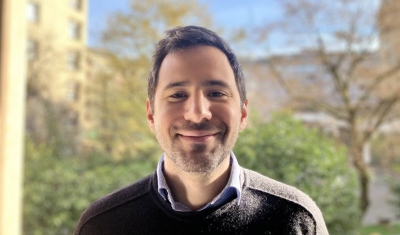19 Professionals Start the Executive Master in International Law in Armed Conflict


Geneva Academy
14 October 2019
The 19 participants enrolled this year in the Executive Master in International Law in Armed Conflict just started the programme with an introductory course on public international law and a course on the sources and scope of application of international humanitarian law (IHL).
A Rich and Diverse Group
Coming from 18 different countries – Afghanistan, Australia, China, Colombia, Ecuador, France, Greece, Hungary, Italy, Lebanon, the Netherlands, Pakistan, Poland, Rwanda, South Africa, Spain, Switzerland and Syria – they work as diplomats, lawyers as well as for NGOs, UN agencies, the International Committee of the Red Cross and academic institutions.
‘As in previous years, we are thrilled by the diversity and quality of candidates, as well as by their motivation to pursue a degree while working at the same time’ underlines Marco Sassòli, Director of the Geneva Academy.
Distance Learning
Three candidates working in Afghanistan, the Democratic Republic of the Congo and Mauritania took the distant learning option: they will follow the programme from abroad but will be also spending some time in Geneva to follow classes.
A Part-Time Programme for Professionals
The Executive Master in International Law in Armed Conflict is one of the few part-time, innovative and intellectually challenging programmes in the law of armed conflict offered today.
Designed for professionals with demanding jobs and responsibilities, it provides strong theoretical and practical knowledge and responds to the growing need for specialists to address complex humanitarian and human rights challenges and challenging processes such as criminal proceedings, international negotiations and humanitarian interventions.
Courses take place on Thursday evening and Friday afternoon and evening and cover international law, IHL, international human rights law (IHRL), international criminal law (ICL) and the interplay between them. They also address current issues and challenges, including the repression of terrorism, peacekeeping and international refugee law.
After the completion of courses, six to nine additional months are needed to complete a master’s thesis and defend it before a jury. Participants are not required to remain on campus or in Geneva to write their thesis.








